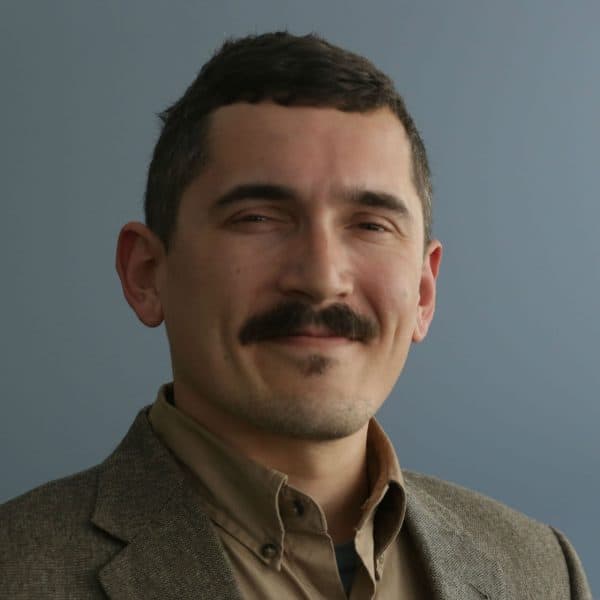Advertisement
Climate Change In Mass.
As Construction And Tides Rise, Group Aims To Make Eastie 'More Resilient' Against Climate Change
Resume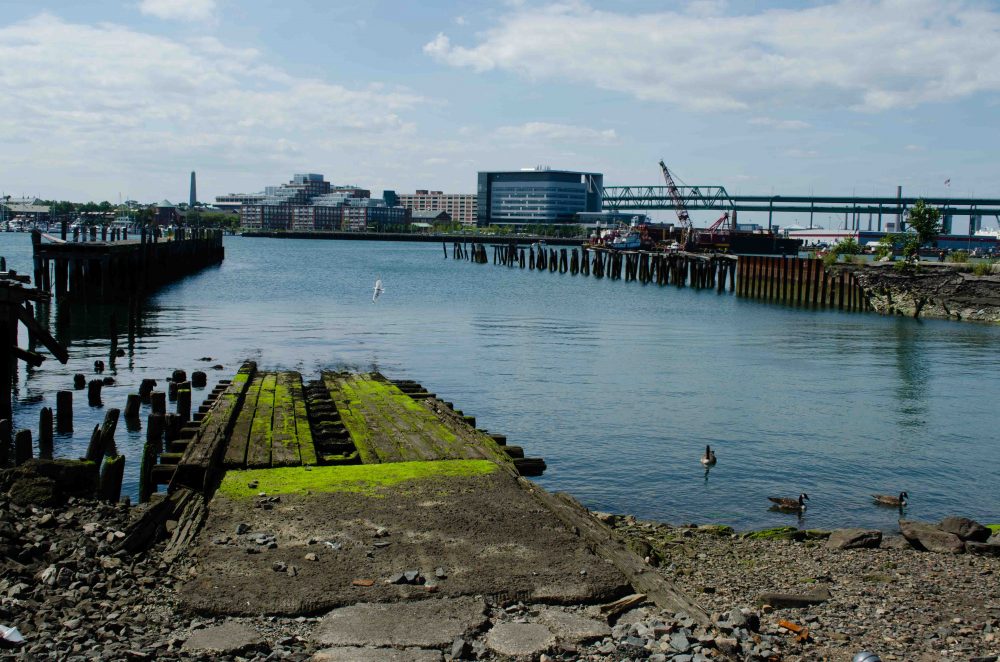
Michele Modica lives in a humble row house on Haynes Street in East Boston. Her mother bought the place for a $1,000 in the early 1950s. Modica was born and raised in the neighborhood, and she plans to stay — unless her flood insurance continues to rise.
"It might've been like six years ago that, all of a sudden, my mortgage company told me I needed to have flood insurance," she says. "And it was only $500, and I said 'oh, that's not too bad,' and then every year it incrementally went up."
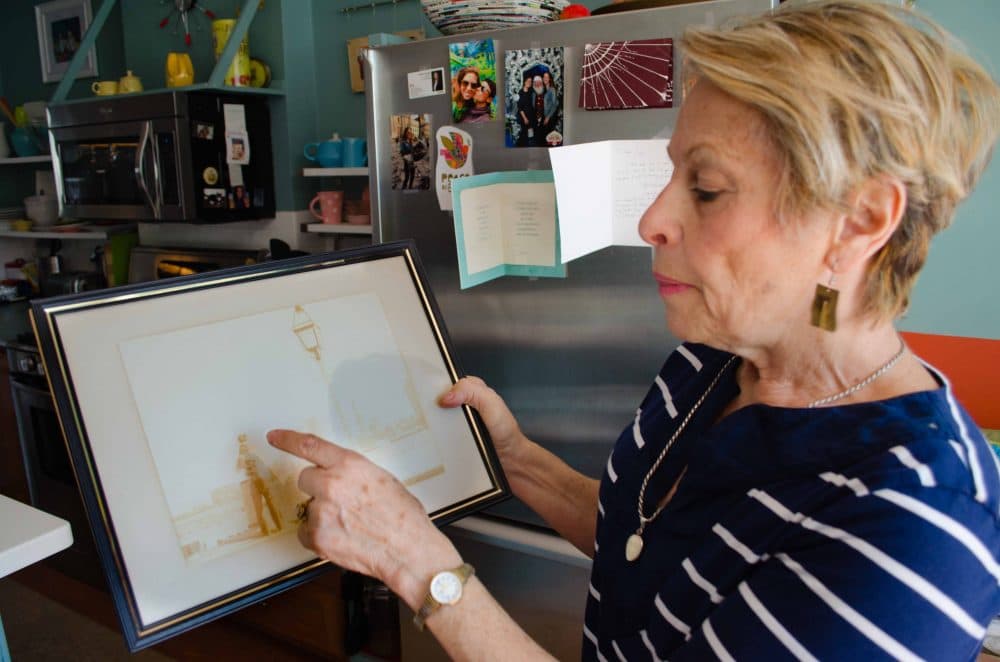
It's hard to come up with a neighborhood transforming as quickly as this little corner of East Boston. Within 10 blocks of Modica's house, city records show 18 housing developments either approved, being reviewed or under construction.
Modica says it's all driving up her tax bill, and the climate is driving up her flood insurance.
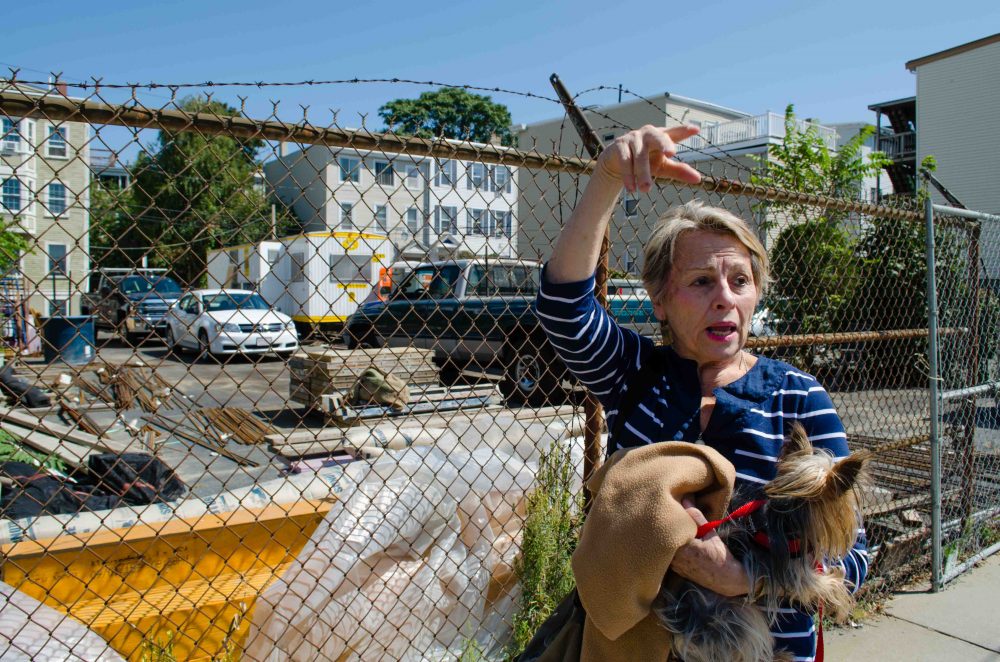
The partisan divide in this country is vast. A Pew Research Center poll finds climate change is a top priority for Democrats and the least important issue listed for Republicans.
Modica describes herself as a conservative who is skeptical of the way Democrats talk about climate. But she now considers climate change one of her top concerns.
"It may mean I can't live where I want to live," she says.
She and many of her neighbors are being tugged by two forces transforming East Boston: rising development and rising tides.
East Boston's 'Harborwalk'
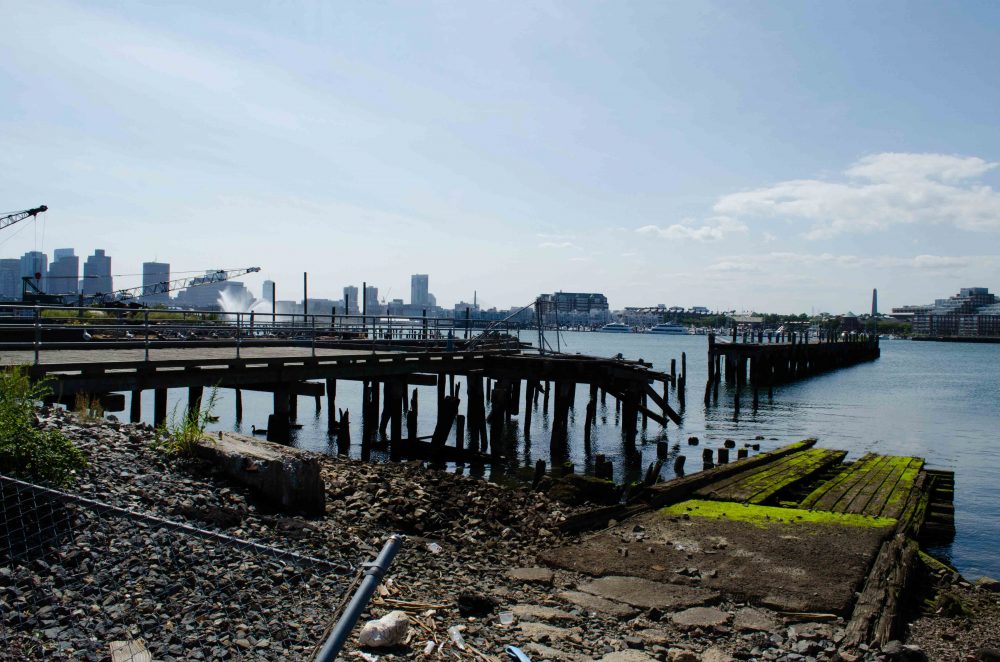
It's a dynamic that keeps climate activist Magdalena Ayed awake at night. Ayed looks out at a decrepit area of the East Boston waterfront behind a Shaw's supermarket, where wooden docks rot into the ocean and brightly colored trash litters the shore.
"It's a dump. It's a shame," Ayed says. "It hurts me as a community person that this is what I have to look at, and this is our harborwalk."
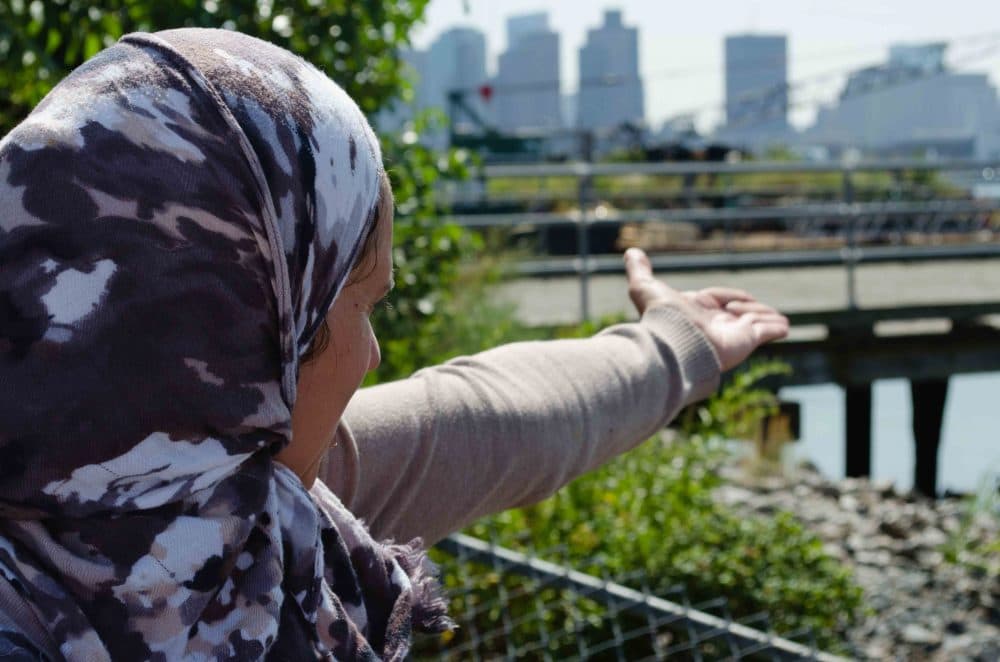
Ayed is the founder of Harborkeepers, an East Boston group dedicated to community-based climate work. It's a bottom-up approach in a city Ayed says does climate preparedness from the top down.
Harborkeepers advocates for residents to have a greater role in the city's climate initiatives. It's all volunteer work, but Ayed is applying for funding so she can pay organizers.
"The way you make a community more resilient, one of the ways you do it is by channeling those financial resources and hiring local people — even if it means just stipends. Stipends can go a long way for low- to middle-income backgrounds," she explains.
Harborkeepers recently conducted a survey in East Boston to gauge where the community is at on climate resiliency. The survey revealed that only half of respondents said they or their family members have homeowners or renters insurance. More than three quarters of respondents said they did not know the locations of the evacuation routes out of the neighborhood.
Ayed says she wants to turn these numbers upside down and hopes to achieve this by inspiring people to engage in climate resiliency work. To do that, she says, part of the money spent on this work should go to people in the community.
"The trouble with climate change is it's the biggest thing that human beings have ever done, so big that it's hard sometimes to back up and even see it."
Bill McKibben
Bill McKibben, a professor at Middlebury College in Vermont who also runs an international environmental organization, says it's always common people on the front lines.
"All of us are ordinary people, right? We live in a particular place, so we know some things about that place: how high it is above the ocean; what the summer is like compared to what it was like we were young and growing up," he says. "All those kinds of very valuable pieces of information that are what allow us to understand this overwhelming change that's taking place across the entire planet."
But, McKibben says, it can be challenging to get people to be concerned about the threat of climate change because its incremental changes can often seem invisible.
"The trouble with climate change is it's the biggest thing that human beings have ever done, so big that it's hard sometimes to back up and even see it," he says.
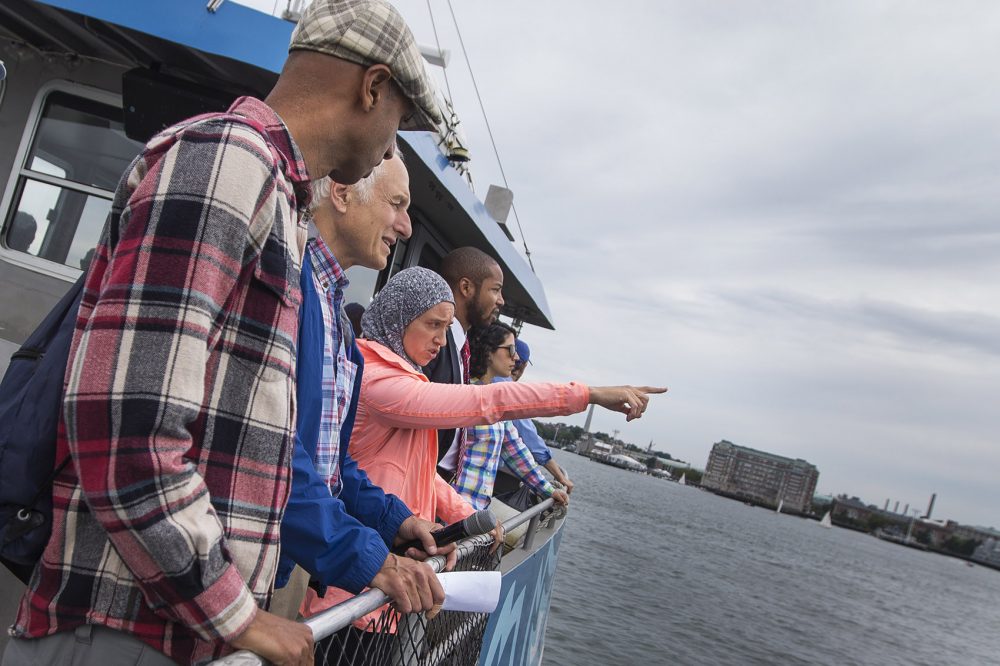
Harborkeepers also has been using social media to connect across the community. In hopes of engaging residents in the group's work, Ayed and her colleague Kannan Thiruvengadam recently went live on Facebook from Chelsea Creek in East Boston.
"I looked down, and I saw a sea star in the creek, which I never see ... oh, there's a hermit crab!" she says in surprise, bending to get a closer look.
"And there are many of them," says Thiruvengadam.
"Oh, there's a fish, look! This is a total tide pool right now," Ayed says.
"You just have to come down here and wait and watch," responds Thiruvengadam.
Ayed says that's part of the Harborkeepers' strategy: to connect the people of East Boston with the water rising around them.
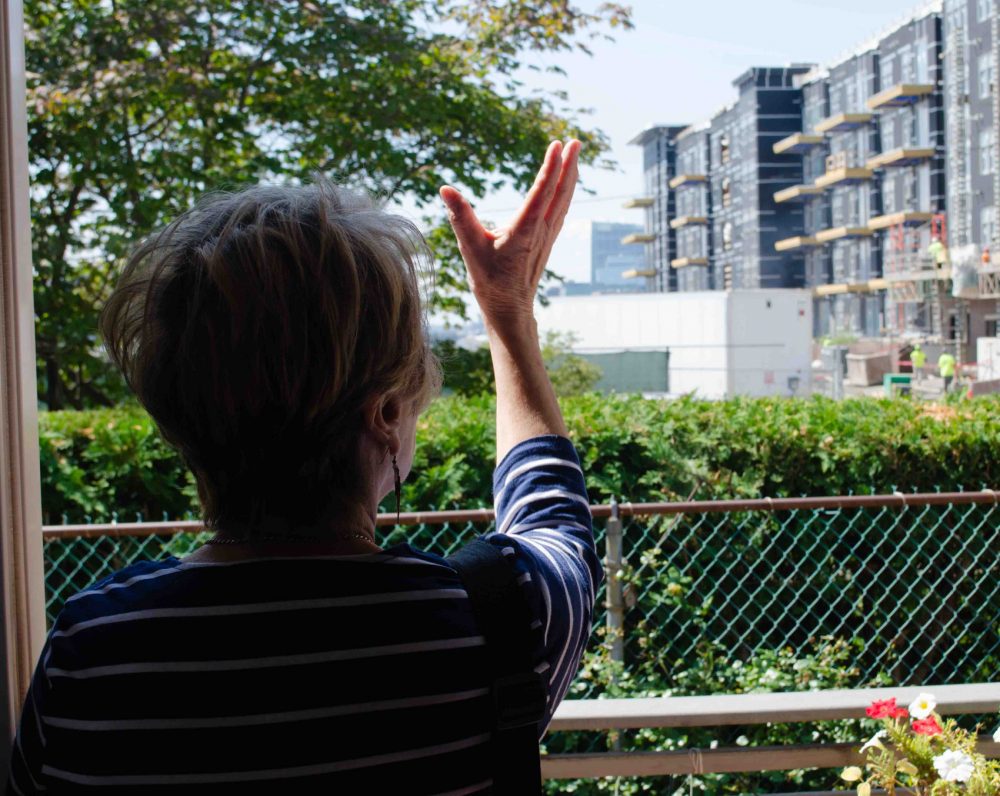
For fellow East Boston resident Michele Modica, the connection is clear: rising sea levels may eventually push her from her home — not necessarily the flood waters, but rising flood insurance.
"I may not be able to live in this house 'til I die, because if my flood insurance goes up to say $8,000 or $10,000, I can't afford that," she says.
It's that kind of sentiment that Ayed and the Harborkeepers want to turn into activism.
This article was originally published on September 06, 2017.
This segment aired on September 6, 2017.
